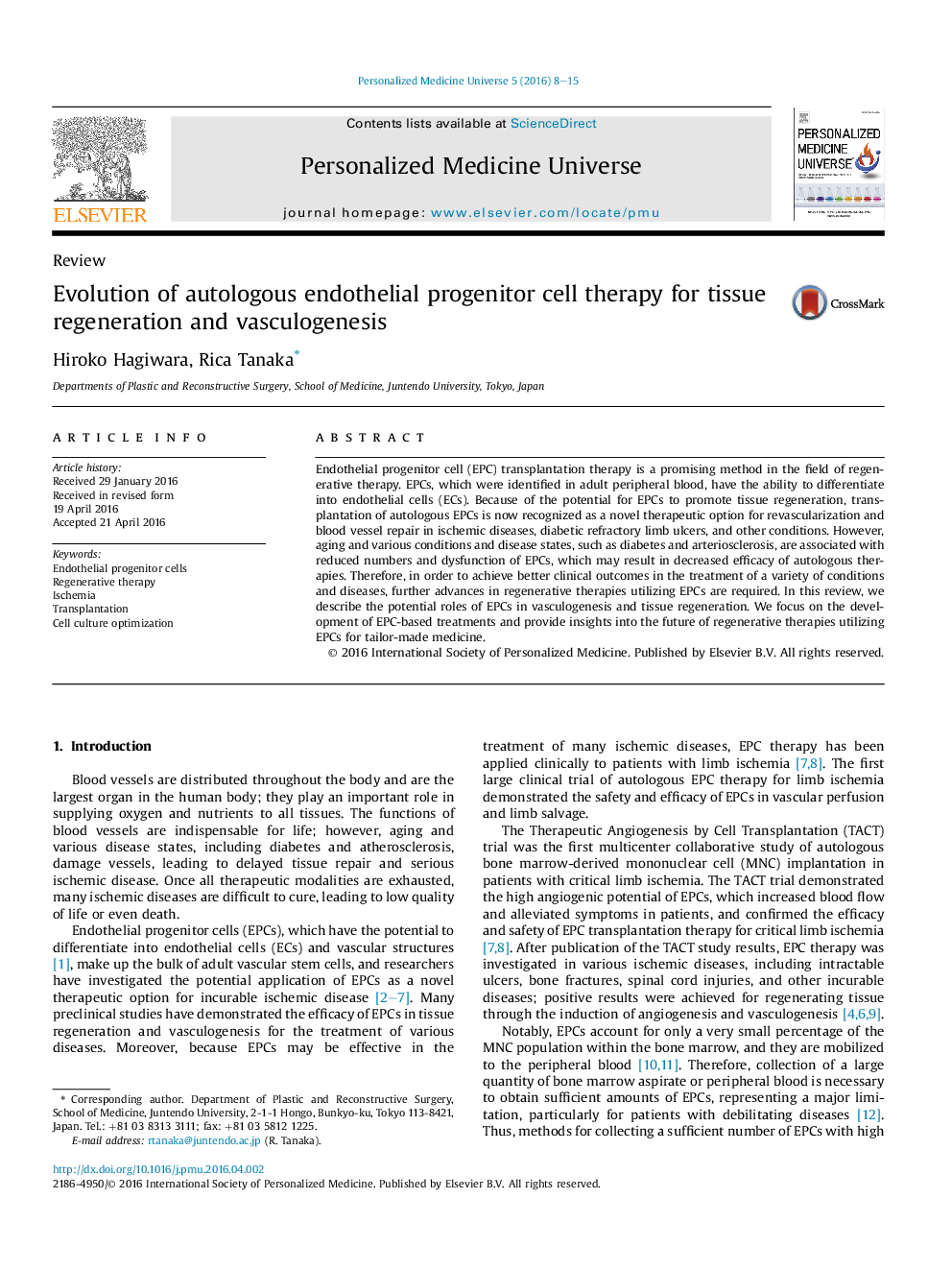| Article ID | Journal | Published Year | Pages | File Type |
|---|---|---|---|---|
| 3382605 | Personalized Medicine Universe | 2016 | 8 Pages |
Endothelial progenitor cell (EPC) transplantation therapy is a promising method in the field of regenerative therapy. EPCs, which were identified in adult peripheral blood, have the ability to differentiate into endothelial cells (ECs). Because of the potential for EPCs to promote tissue regeneration, transplantation of autologous EPCs is now recognized as a novel therapeutic option for revascularization and blood vessel repair in ischemic diseases, diabetic refractory limb ulcers, and other conditions. However, aging and various conditions and disease states, such as diabetes and arteriosclerosis, are associated with reduced numbers and dysfunction of EPCs, which may result in decreased efficacy of autologous therapies. Therefore, in order to achieve better clinical outcomes in the treatment of a variety of conditions and diseases, further advances in regenerative therapies utilizing EPCs are required. In this review, we describe the potential roles of EPCs in vasculogenesis and tissue regeneration. We focus on the development of EPC-based treatments and provide insights into the future of regenerative therapies utilizing EPCs for tailor-made medicine.
